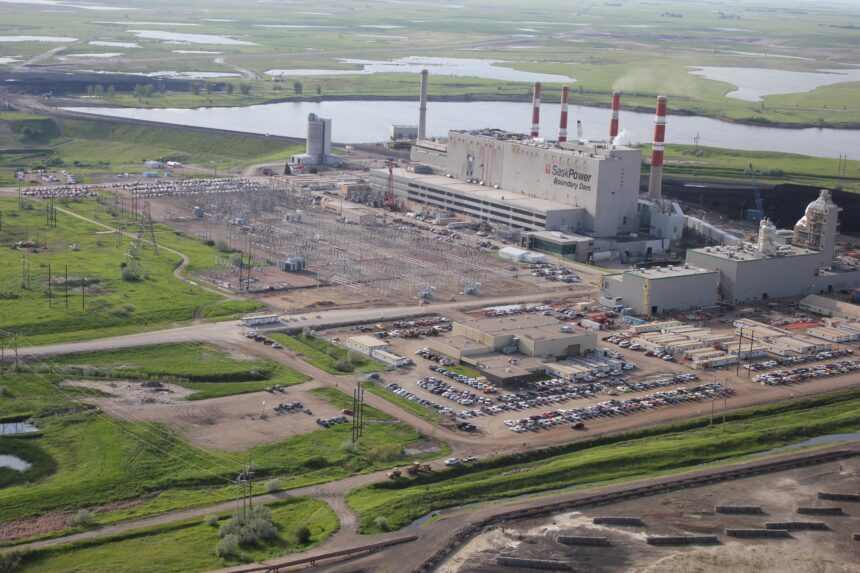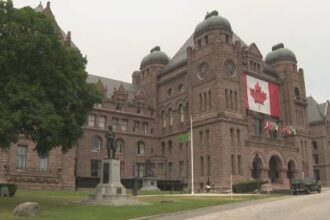In a bold legal confrontation that could reshape Canada’s energy transition timeline, Saskatchewan’s provincial government launched a constitutional challenge against Ottawa yesterday, directly targeting the federal government’s coal phase-out regulations. The lawsuit, filed in the Court of King’s Bench, alleges federal overreach into provincial jurisdiction over electricity generation and natural resources.
“This isn’t merely about coal—it’s about who controls Saskatchewan’s energy future,” declared Premier Scott Moe during a press conference in Regina. “The federal government’s arbitrary timeline threatens both our economic stability and our energy security in ways that simply aren’t sustainable for our province.”
The legal challenge centers on Ottawa’s decision to reject Saskatchewan’s request for an equivalency agreement that would have allowed the province to continue operating its coal-fired power plants beyond the 2030 national deadline. SaskPower, the provincial utility, had sought permission to maintain coal generation until 2035, arguing that the five-year extension was critical for ensuring grid reliability and managing transition costs.
Federal Environment Minister Steven Guilbeault responded swiftly, defending the government’s position. “We’ve already granted extensions to New Brunswick and Nova Scotia based on their specific circumstances and transition plans. Saskatchewan’s proposal, however, lacked sufficient emissions reduction commitments to justify similar treatment,” Guilbeault stated.
At stake are Saskatchewan’s two remaining coal facilities at Boundary Dam and Poplar River, which currently generate approximately 20% of the province’s electricity. SaskPower CEO Mike Marsh emphasized the practical challenges of an accelerated transition: “Our modeling shows a 2030 shutdown would necessitate nearly $2 billion in additional infrastructure spending while potentially compromising grid reliability during peak demand periods.”
Environmental groups have criticized the lawsuit as a delay tactic. “This legal challenge represents a disappointing step backward for climate action in Canada,” said Emma Thompson of Climate Action Saskatchewan. “The science is clear that coal power must be eliminated quickly to meet our emissions targets.”
The constitutional challenge hinges on Section 92A of the Constitution Act, which grants provinces exclusive jurisdiction over development and management of non-renewable natural resources and electrical energy. Saskatchewan’s Justice Minister Bronwyn Eyre emphasized this point: “The federal government’s regulatory approach effectively dictates provincial energy policy through the back door—something explicitly prohibited by our constitutional framework.”
Economic concerns feature prominently in the province’s arguments. The coal industry employs approximately 1,200 people in southeastern Saskatchewan, primarily in the Estevan and Coronach regions. Local officials estimate the phase-out could result in over $400 million in lost economic activity annually for these already struggling communities.
The federal coal regulations, first introduced in 2012 and later accelerated, require all traditional coal-fired electricity to end by December 31, 2029. Provinces seeking extensions must demonstrate equivalent or greater emissions reductions through alternative measures—a standard Saskatchewan claims is being applied inconsistently across regions.
Energy policy experts suggest the case could have significant implications for Canadian politics and federalism. “This represents the most direct challenge yet to Ottawa’s climate regulatory framework,” noted Dr. Monica Williams, professor of energy policy at the University of Regina. “The courts will essentially be asked to determine where environmental protection ends and provincial resource jurisdiction begins.”
Industry analysts point out that the lawsuit comes amid rising electricity costs nationwide and growing concerns about grid reliability. Saskatchewan has experienced three major grid failures in the past 18 months during extreme weather events, fueling the province’s argument for a more gradual transition timeline.
The case raises a fundamental question that continues to challenge Canada’s climate policies: How can the country balance urgent climate action with regional economic realities and constitutional division of powers? The outcome could significantly influence both the pace and approach of Canada’s energy transition for decades to come.










